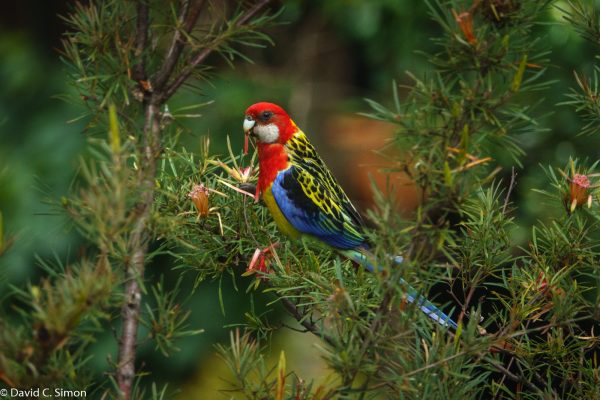“Only when you are in trouble do you realize who your true friends are… And, my dear, you will be surprised!”
―
“The first thing the police had done was call in M’s three colleagues to see if they knew of anyone who might have a grudge against M. It was hence a great surprise when this somewhat routine procedure generated not leads but confessions—three of them” — “Philosophy Rashômon,” by Liam Bright (LSE)
“Well, I don’t want to sit by this siren till I die of old age. / So what’s the reason I can’t turn the page? / Simple answer. Shame. / He’s the only man in the world who can see through my game.” — poet Anne Carson renders Alcibiades’s speech in The Symposium in verse (via Aaron Garrett)
Rose Dugdale was a 33-year-old British heiress with a Ph.D. and a glowing recommendation from Iris Murdoch. How did she end up an art thief
THE BEIJING JOB: China now blaming Italy for starting Wuhan coronavirus pandemic.
Which is an interesting turn of events considering that in Febuary, the Chinese government encouraged Italians to fight Coronavirus racism by hugging strangers: “Titled ‘Italian residents hug Chinese people to encourage them in coronavirus fight,’ the brief video shows a handsome, casually dressed young Chinese man standing in a busy pedestrian area in Florence. He’s blindfolded and wearing a surgical mask, next to a handwritten sign reading the following in Italian and Chinese: ‘I am not a virus. I am a human being. Free me from prejudice.’ Then, as stirring electronic music swells, passersby hug him and touch his face to remove his blindfold and mask. So much for ‘social distancing.’ This was released on February 4, 2020. Six weeks later, Italy now has more active coronavirus cases than anywhere else in the world, and the entire country has completely shut down.”
Lunch with the FT Life & Arts Add to myFT
‘There will be shocks’: Yngve Slyngstad, Norway’s $1tn man
The investor on his time at the helm of the world’s biggest sovereign wealth fund
Norway’s sovereign wealth fund is a fairytale of global finance. In less than 25 years investing the energy riches of the North Sea, it has grown into a $1.2tn giant; it owns 1.5 per cent of the world’s publicly traded companies. Who more stimulating for me to have my first formal lunch with in six months, I think, than the man who for more than a decade presided over this behemoth — and used its heft to hold company boards to account for their environmental and social impact?
Yngve Slyngstad, who stepped down this summer, has proposed we meet at FishWorks in Marylebone, central London. From the outside, FishWorks looks like a small unadorned fishmonger. He leads me past crates of fresh fish into the restaurant area in the back. He likes it, he says, because it is “one of the few places where you know they actually receive their own catch”.
He also chose it, he says, for the mysterious reason that “we could in theory call the bottom the ‘fishing ground’.” What he means, it turns out, is that the “oil” fund – which regularly covers one-sixth of public spending – is not tied to oil per se. What Norway did was save its export surplus, which could just as easily have come from the country’s other abundant resource in the North Sea. Most of the fund’s value comes from accumulated gains on bonds, stocks and property. As he wryly observes, “We haven’t even started spending the money on oil.”
I meet my compatriot before London falls into the second lockdown. For a fraction of a second, I wish I had ventured outside, because while the fish looks impeccably fresh, the place isn’t great for social distancing. The waiters are all wearing facial blankets, but even so, it’s an odd feeling to be inside at what will turn out to be a very busy lunch, with tables less than three feet in diameter.
ZDNet – “IT’s role is more critical than ever in a world that’s increasingly dependent on digital. Organizations are under increasing pressure to stay competitive and create connected experiences. According to Salesforce MuleSoft Connectivity benchmark report, IT projects are projected to grow by 40%; and 82% of businesses are now holding their IT teams accountable for delivering connected customer experiences. Research from MuleSoft proprietary research and third-party findings highlight some of the top trends facing CIOs, IT leaders, and organizations in their digital transformation journey…”
After more than a decade of writing life-changing advice, I know when to move on. Here’s what else I learned: “In the very first installment of my column for the Guardian’s Weekend magazine, a dizzying number of years ago now, I wrote that it would continue until I had discovered the secret of human happiness, whereupon it would cease. Typically for me, back then, this was a case of facetiousness disguising earnestness…Writing a column provided the perfect cover for such otherwise embarrassing fare. I hoped I’d help others too, of course, but I was totally unprepared for how companionable the journey would feel: while I’ve occasionally received requests for help with people’s personal problems, my inbox has mainly been filled with ideas, life stories, quotations and book recommendations from readers often far wiser than me…For all that: thank you…I am drawing a line today not because I have uncovered all the answers, but because I have a powerful hunch that the moment is right to do so. If nothing else, I hope I’ve acquired sufficient self-knowledge to know when it’s time to move on. So what did I learn? What follows isn’t intended as an exhaustive summary. But these are the principles that surfaced again and again, and that now seem to me most useful for navigating times as baffling and stress-inducing as ours…”
